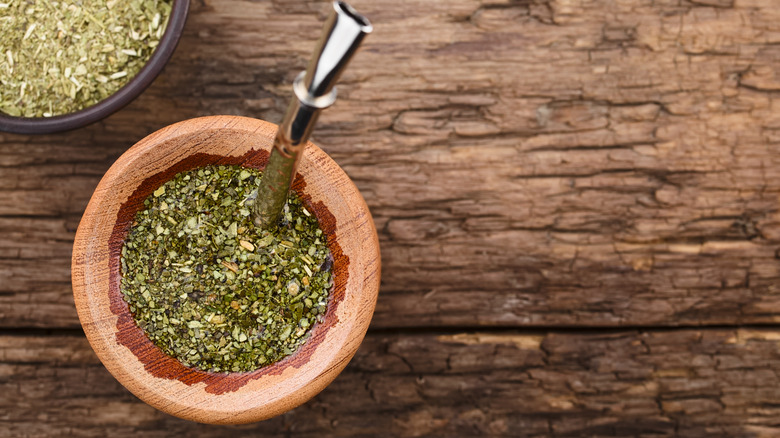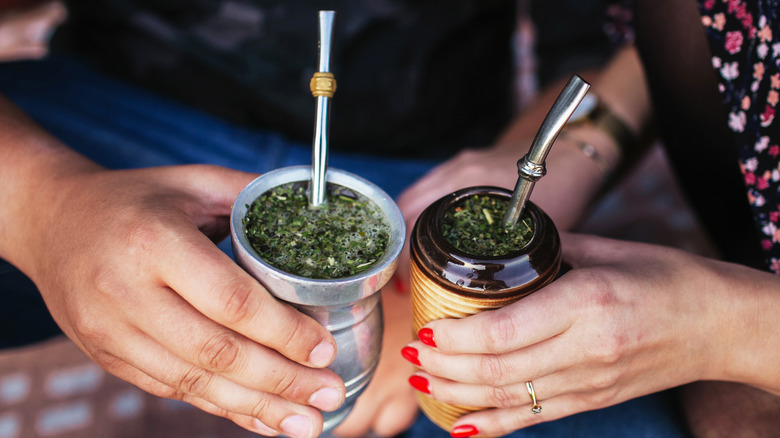What Drinking Yerba Mate Tea Does For Your Body
You may have heard of yerba mate tea as a powerful new superfood — similar to match tea — but does it really have as many health benefits as some people claim? The bitter-tasting brew might be an interesting addition for any tea lover, and its low caffeine content makes it a good choice for an afternoon beverage break.
The yerba mate is a South American tree (Ilex paraguariensis) that is in the holly family, and its leaves have been used for tea in countries like Brazil, Paraguay, Argentina, and Uruguay. Traditionally drunk from a gourd, it's nutrient-dense for a tea, containing antioxidants as well as 24 other vitamins, minerals, and amino acids (via Very Well Fit).
In fact, its antioxidant content is higher than that of green tea, including polyphenols, saponins, caffeoyl derivatives, and xanthines (which include caffeine). These high levels of antioxidants make it a great beverage of choice for someone who's trying to fight inflammation, while also providing a mild pick-me-up (via Healthline).
What else can yerba mate do for the body?
Many yerba mate drinkers enjoy the fact that the caffeine buzz associated with it is more mild than chugging a cup of coffee. However, it also seems to increase mental focus and boost energy, without the jittery side effects. These observations, though, are anecdotal — research on how well yerba mate works for energy boosts is still lacking (via Healthline).
While yerba mate may be worth trying, it's not going to solve all of your health woes. The Mayo Clinic is quick to note that while yerba mate is widely regarded as a "superfood," claims that it can "relieve fatigue, aid in weight loss, ease depression, and help treat headaches and various other conditions" should be taken with a grain of salt: There is limited evidence or research to back these claims.
In fact, be careful if you're constantly drinking piping hot yerba mate: some studies have linked sipping the steamy drink with an increase in your risk for oral and esophageal cancers, though researchers believe that has more to do with the temperature of the drink versus the tea itself (via Quick and Dirty Tips).


